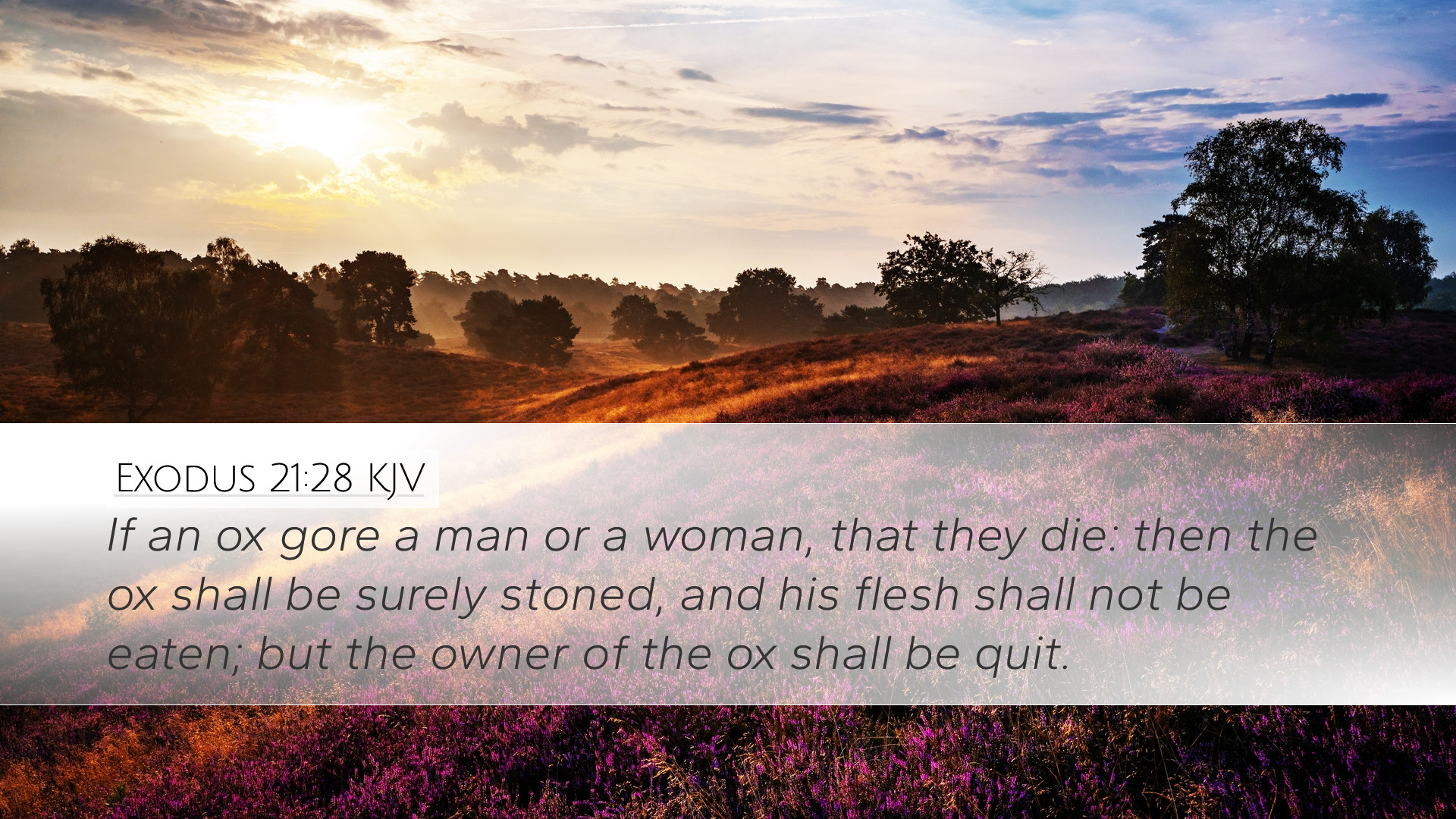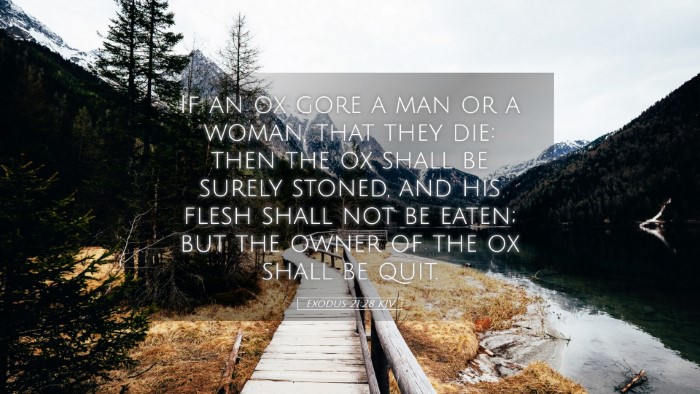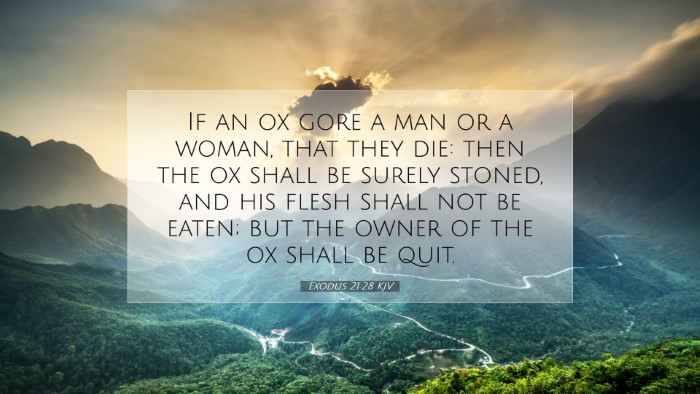Exodus 21:28 - Commentary and Insights
Verse: "If an ox gores a man or a woman to death, then the ox shall surely be stoned, and its flesh shall not be eaten; but the owner of the ox shall be acquitted."
Contextual Background
The laws found in Exodus 21 are part of the broader legal framework given to Israel at Mount Sinai. This chapter, in particular, details various case laws concerning personal injuries, property damages, and social justice. It is essential for prior understanding to acknowledge God's justice and mercy as foundational themes in the giving of these laws.
Commentary Insights
About the Ox
Matthew Henry discusses the ox as a common animal in agrarian society, representing wealth and labor. The goring of a person by the ox served as a judicial case illustrating God's holy standards regarding responsibility and the inherent value of human life. The punishment demonstrated the seriousness of negligence and the necessity of taking precautions in the care of dangerous animals.
Moral and Ethical Implications
Albert Barnes reflects on the ethical implications of the law, stressing that it outlines both personal and communal responsibilities. If an owner neglects to maintain control over their ox, they bear a greater moral burden. This law serves as a precursor to modern legal systems that impose liability on owners for offenses committed by their animals, illustrating the principle of stewardship and accountability.
Judicial Acquittal of the Owner
Adam Clarke emphasizes the judicial acquittal of the owner, noting that if the ox had previously shown no ferocity, the owner is protected under this law. Clarke argues this equality in justice demonstrates God's fairness, as punishment considers intent and prior behavior. The law serves as a reflection of divine justice rather than mere retribution.
Symbolism of Stoning
Both Henry and Barnes comment on the act of stoning as a means of divine judgment. The ox's stoning symbolizes a definitive closure on the matter, allowing the community to witness the gravity of the offense. The prohibition against consuming the ox emphasizes purity and God's desire for a separation between life and death, reinforcing the sanctity of human life.
Application in Contemporary Theology
The principles derived from Exodus 21:28 hold valuable teachings for today's life and ministry contexts. Responsible stewardship, accountability for one's possessions, and the sanctity of life remain pertinent issues. Pastors and theologians may explore how these ancient laws inform contemporary views on personal responsibility, ethics in animal ownership, and the value placed on human life.
Conclusion
Exodus 21:28 encapsulates significant principles of justice, responsibility, and the ethical treatment of others. Through critical examination of public domain commentaries by Matthew Henry, Albert Barnes, and Adam Clarke, we see a rich tapestry of thought that remains relevant. This text serves not only as a legal decree from ancient Israel but as a timeless reminder of the moral imperatives that guide human behavior and societal norms.
Key Takeaways
- The necessity of responsibility in animal stewardship.
- The reflection of divine justice through equitable laws.
- The implications of communal awareness in issues of negligence.
- The call to prioritize the sanctity of human life in all matters.
- The relevance of ancient laws in contemporary theological discourse.


